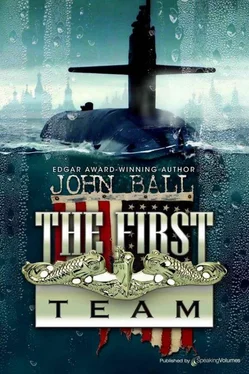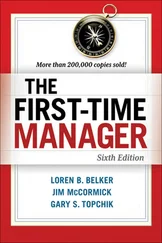Джон Болл - The First Team
Здесь есть возможность читать онлайн «Джон Болл - The First Team» весь текст электронной книги совершенно бесплатно (целиком полную версию без сокращений). В некоторых случаях можно слушать аудио, скачать через торрент в формате fb2 и присутствует краткое содержание. Год выпуска: 2013, Жанр: Триллер, на английском языке. Описание произведения, (предисловие) а так же отзывы посетителей доступны на портале библиотеки ЛибКат.
- Название:The First Team
- Автор:
- Жанр:
- Год:2013
- ISBN:нет данных
- Рейтинг книги:5 / 5. Голосов: 1
-
Избранное:Добавить в избранное
- Отзывы:
-
Ваша оценка:
- 100
- 1
- 2
- 3
- 4
- 5
The First Team: краткое содержание, описание и аннотация
Предлагаем к чтению аннотацию, описание, краткое содержание или предисловие (зависит от того, что написал сам автор книги «The First Team»). Если вы не нашли необходимую информацию о книге — напишите в комментариях, мы постараемся отыскать её.
Student protesters are being slaughtered in the Midwest.
The Jewish pogroms have begun.
You are now living in Soviet — occupied America!
One nuclear submarine and a handful of determined patriots against the combined might of Russia and Soviet-occupied America… The Most Explosive and Gripping “What If” Novel of Our Time!
First published January 1971
The First Team — читать онлайн бесплатно полную книгу (весь текст) целиком
Ниже представлен текст книги, разбитый по страницам. Система сохранения места последней прочитанной страницы, позволяет с удобством читать онлайн бесплатно книгу «The First Team», без необходимости каждый раз заново искать на чём Вы остановились. Поставьте закладку, и сможете в любой момент перейти на страницу, на которой закончили чтение.
Интервал:
Закладка:
Zalinsky leaned forward and pointed a finger at him. “But you did; you forced people to register because of their race, then you threw them into concentration camps and kept them there for years.” Zalinsky paused for a moment, and then continued. “You forced them to dispose of their possessions for pennies, and solely because of their ethnic background you imprisoned them, your own citizens who had done nothing to deserve it, under armed guard.”
Then Hewlitt remembered. It had happened, just as Zalinsky had described it, and there was no way to refute it.
“In World War II your General DeWitt forced every one of your citizens who was of Japanese ancestry to register, then he shipped them all off like cattle. They had no choice. It is also a fact of history that you may not know that even then not one of these people ever helped your enemies.”
“That is true, Mr. Zalinsky, and it was wrong,” Hewlitt admitted. “It happened because after the surprise attack on Pearl Harbor, the Japanese in this country, I should say the Japanese-Americans, were totally mistrusted.”
Zalinsky dismissed that with a wave of his arm. “Then in that case why didn’t you imprison the Germans and the Italians too? It would have been the logical thing to do.”
Aware that he was at a disadvantage, Hewlitt said nothing. “Returning now to the Jews,” Zalinsky went on. “They have had two thousand years in which to accommodate themselves to the rest of humanity and what have they done? Some have become like other people, yes, but most of them have demanded to remain Jews above all else. They demand to be accepted equally in every way, then also demand that they have the right to remain forever different. It is impossible. Do you believe that they are the one and only chosen people of your God?”
“No,” Hewlitt said, “but if they want to believe that, that’s their business.”
Zalinsky put his elbows on the desk that properly belonged to the President of the United States, and leaned forward. “For again two thousand years the Jews have cried that they had no homeland, and insisted upon their Jewishness. Now they have one — all right, let them go there and be as Jewish as they like. They stay here only to make money…”
“No,” Hewlitt interrupted, “I cannot agree with that. They are Americans, this is their homeland. And why don’t you allow your own Jews to go to Israel if they wish?”
Zalinsky deliberately stopped for a few seconds to let the fact sink home that he had been interrupted. “The fact that we discuss this, it is proof of the problem. If the Jews were able to integrate with other people, then you would not have in your language any such word as anti-Semitism. It exists because in twenty centuries these people have insisted in keeping themselves apart. Now we are assisting them to do just that.”
Something in Zalinsky’s tone warned Hewlitt that the atmosphere was changing. He had been a little too bold, and a sudden chill was developing rapidly. “I see,” he said, and was careful to sound like a dutiful student.
Zalinsky studied him for a moment, then accepted his apparent change in attitude. “We will talk more later,” he said stiffly. He hesitated and then added, “You will go.”
It was from a totally unexpected source that the colonel got the first break in his campaign. It came from Midwest America, where the true nature of what had happened to the country was just beginning to be understood. In that section, far from either of the great oceans which formerly had guarded the nation’s shores, a steady belief had prevailed that the whole thing was some kind of a political mishmash which would be straightened out eventually at the conference table. As the days passed and concrete evidence of the disaster failed to appear, an illusion arose that the United States was simply too large and too powerful to be taken over by anybody. Then the enemy began to arrive. When a police chief was forcefully ejected from his office, and when the mayor of a major city was summarily barred from the building that had been his headquarters, the reality began to sink in. And a certain small-time police informer who also gathered information for anyone who would pay decided that the coming of the new bosses could very well mean an additional source of revenue.
Colonel Rostovitch did not as yet have too many men to spare for distribution around the country, but with more arriving each day on a basis of strict priority he made a first deployment. His instructions were explicit and basic: ferret out any kind of underground activity, organized or otherwise, and deal with it summarily. Originally his plan had been far different, but the matter of the Jews could come later. He had lost a round, and in the powerconscious world in which he lived a fast and effective counter was imperative. No one had ever crossed swords with Gregor Rostovitch without paying heavily for the privilege, and that record was not about to be broken.
In a good-sized city, west of the Mississippi but east of the Rockies, a little man known only as Archie spent almost the whole of his waking time wandering about, usually in a mild state of alcoholic fog, living an apparently hand-to-mouth existence. What food he was seen buying came from the half-price bakery outlets that sold day-old merchandise and from the bargain bins in the markets where the dented and disfigured cans were dumped at marked-down rates. He was so patently impotent and unqualified for any sort of gainful employment that he became the tolerated invisible man — like Father Brown’s postman so commonplace that no one took any real notice of him.
All or much of this was window dressing, as were the threadbare clothes that he wore and the servile manner that he exhibited whenever anyone amused himself by buying him a drink or standing him a hot dog smothered in hot mustard and raw onions. While not visibly a man of property in the usual sense, Archie was not nearly as close to the extremes of mere existence as he appeared. He was a collector of information, a beachcomber who gathered his findings on the fringes of society and then sorted them out, carefully evaluating who might buy what. It was remarkable that he had been able to continue for so long without having been exposed for what he was, but he had been endowed with a near genius for footwork of the kind that skillfully avoids trouble of any kind whenever it appears in the offing. Several times he had arranged to be clapped into jail during periods when he was most anxious not to be found at his usual haunts; this had provided him with unshakable alibis as well as the proper respectability of a minor police record.
One of his steady clients was the police department — not everyone within that organization, but one or two individuals who had demonstrated over a period of time that they could be both close-mouthed and liberal in the cash they handed out. This arrangement had worked out well on both sides because of Archie’s sometimes remarkable ability to appear to sink into the woodwork or to maintain a facade of simple stupidity so effectively that he was hardly regarded as a human being. Those who knew Archie, or saw him around, had put him down long since as rum dumb with the ability to go to the men’s room on his own about the limit of his capability.
Some of Archie’s clients did not even know who he was. They were aware only that if they inserted a certain ad in the classified section, they would receive a telephone call. By phone they made their wants known and agreed upon a price. Later, if all went well, they would be called again and the details of the transfer of funds and information would be arranged. Archie did not have a social security number and the Bureau of Internal Revenue took no notice of him. Somewhere, in some forgotten corner of the nation, there was probably a record of his birth which had not been consulted since the day that it had been filed. His police record, by very special private arrangement, did not exist at all since most of his arrests had been matters of mutual convenience. Where he kept his money only Archie knew, but it was suspected in one or two quarters that the amount might be quite substantial. As indeed it was.
Читать дальшеИнтервал:
Закладка:
Похожие книги на «The First Team»
Представляем Вашему вниманию похожие книги на «The First Team» списком для выбора. Мы отобрали схожую по названию и смыслу литературу в надежде предоставить читателям больше вариантов отыскать новые, интересные, ещё непрочитанные произведения.
Обсуждение, отзывы о книге «The First Team» и просто собственные мнения читателей. Оставьте ваши комментарии, напишите, что Вы думаете о произведении, его смысле или главных героях. Укажите что конкретно понравилось, а что нет, и почему Вы так считаете.












